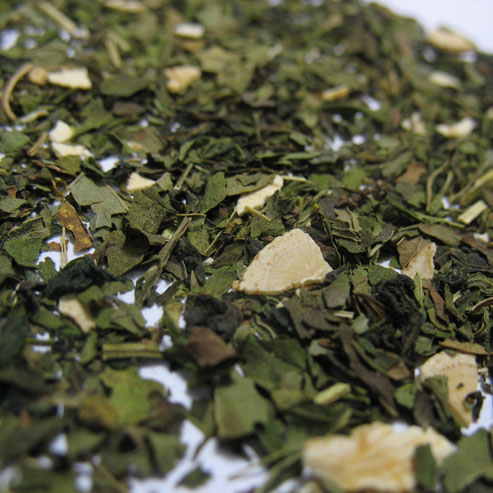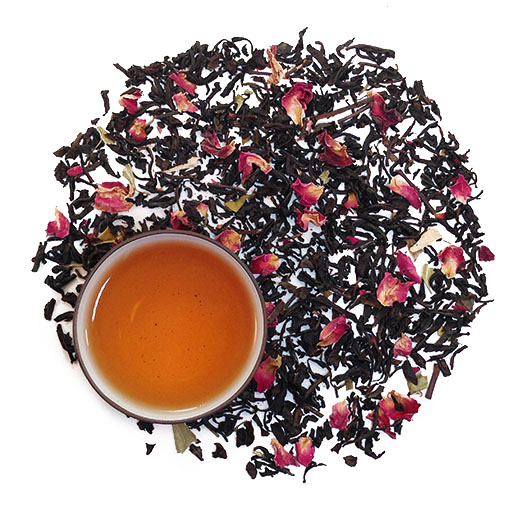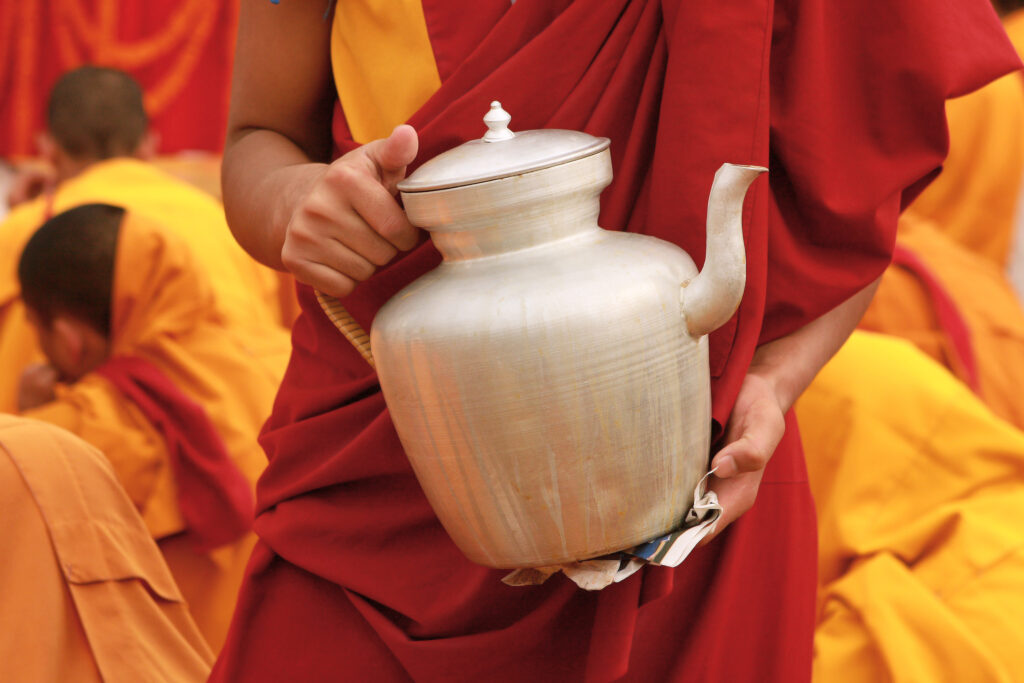Get That Heart Pumping Smoothly With Healthy Tea
Enhancing heart health is one of the smartest activities we can pursue. Heart disease, after all, is the leading cause of death for men and women, regardless of racial and ethnic groups, in the United States.
The fist-sized, four-chambered organ, weighing less than a pound, beats about 100,000 times a day, delivering 8 pints of oxygen-rich and nutrient-dense blood to organs and tissues. It also hauls away some of the body’s waste, in the form of carbon dioxide, which is a waste product of metabolism. When the heart stops pumping, the body’s circulatory system — the heart, blood, arteries, capillaries and veins — shuts down and life ends.
Fortunately, for most of us the heart does its vital thing without us even thinking about it there in our chests, expanding and contracting 100 times or so every minute. But that doesn’t mean we don’t need to take care of our hearts. As we know, sometimes the heart just gives up, long before the rest of the body is prepared say goodbye to tactile life on Earth. And in many cases, its cessation results from things like poor diets, lack of exercise, stress and other factors over which humans have control.
Tea boosts heart health
Naturally, we endorse engaging with all of the things that boost the heart’s vigor. And that includes drinking teas for heart health.
Many of Ku Cha’s herbal tea blends contain botanicals that help hearts thrive. But compounds found within Camellia sinensis, the genus and species that contains the many varieties of traditional tea — green, white, oolong, black and puerh — also lend the heart a hand during its 24/7 workouts.
As the days shorten and temperatures dip colder, many of us ratchet-back the heart-healthy exercise regimes. At the same time, we eat more artery-clogging comfort food — hello, grilled cheese and creamy tomato soup — and enter a five-week binge-fest spanning Thanksgiving (mmm, gravy), Christmas (those tins of cookies vanish fast) and New Year’s Eve (hello, hangover).
It’s got to stand as the heart’s most challenging season. We suggest savoring it all, but paying close attention hearts along the way. Incorporating heart-supporting teas into daily routines serves as one fantastic, and tasty, strategy.
Ready to boost your heart health? Try our selection of heart-healthy teas and feel the difference. Shop Now!
Teas for Heart Health: Immortal Tea

The strong peppermint profile in this blend decorates the flavor with its cool, zippy notes. But it also balances the bitterness from the tea’s other two ingredients, both of which are powerful heart helpers, and central to our decision to name this custom blend “Immortal Tea”: ginseng and jiaogulan.
Ginseng, a plant native to both parts of Asia and North America from which herbalists harvest the root, is an adaptogen, a kind of botanical that supports the body as it wrestles with stress, anxiety, fatigue and overall wellbeing. Other adaptogens include ashwagandha, eleuthero and rhodiola.
Researchers have studied ginseng for years, evaluating its effectiveness for everything from treating inflammation to lowering blood sugar, preventing the flu and sharpening cognitive function. The root’s relationship to the human heart, too, has received a good deal of attention. While research doesn’t conclusively support the notion that taking ginseng strengthens hearts, it doesn’t rule it out, either. Its potential health advantages look promising.
Many people have heard of ginseng; during the past 20 years in the United States, supplements and beverage manufacturers have spotlighted the root. But comparatively few have encountered jiaogulan (also known as Miracle Plant, “herb of immortality” and Gynostemma), an adaptogen native to China. People use the leaves of this vine, which belongs to the Cucurbitaceae family of gourds and squash (cucumbers reside in the family), to brew healthy teas, craft tinctures and incorporate into supplements.
This is one powerful adaptogen. People across China routinely add it to their health regimes, especially in the mountainous region of Guizhou, which supports an unusually high number of citizens who live past age 100.
Its heart benefits could revolve around its ability to help reduce inflammation, as well as the way it can mitigate effects of stress, such as changes in blood pressure. Probably the most important part of jiaogulan is its wealth of compounds called saponins, which bind to reduce cholesterol. Some evidence suggests that jiaogulan can decrease total cholesterol while increasing the “good” kind of cholesterol, called high-density lipoprotein or HDL.
Explore our range of teas specifically chosen for their heart benefits. Start your journey to a healthier heart today!
Teas for Heart Health: China Rose

Antioxidants called flavonoids explain black tea’s ability to improve heart health. Researchers believe that flavonoids help reduce factors for heart disease, including high cholesterol, elevated triglyceride levels, high blood pressure and obesity.
For example, one large study reported that daily tea drinkers experienced an 8% reduced risk of heart disease, and a 10% reduced risk for traumatic cardiac events. Another study concluded that drinking black tea significantly reduced LDL cholesterol — the “bad” cholesterol. In addition, a review of scientific literature exploring the effects of drinking tea on people suffering from hypertension found that tea lowered their systolic blood pressure.
Our beautiful tea China Rose combines superb black tea with another heart helper — rose petals. The combination yields ambrosial flavors, as well as heart enhancements. That’s a great two-for-one deal!
Discover the delicious and beneficial teas that can support your heart health. Order now and start enjoying the benefits! Order Now.
Teas for Heart Health: Tibetan Tea

Relatively few people outside of Tibet have tried Tibetan Tea. As with puerh, tea farmers harvest leaves — an in the case of Tibetan Tea, twigs as well — and then allow it all to undergo fermentation. Eventually, they form the fermented mass of tea vegetation into bricks, which can be aged — flavors ripen and gain complexity over time. The tea is essential for the Tibetan people, who sip it all day (normally spiked with butter) to provide energy and important vitamins and nutrients to supplement their traditional meat-based diet.
“I’d rather live three days without food that living one day without tea,” goes an old Tibetan saying.
While the butter bit doesn’t support heart vitality, compounds found in the fermented tea serve as excellent aids to the organ. One study, for example, found that Tibetan Tea offers five phenolic components, and one of them, gallic acid (GA), delivers especially potent antioxidant effects, along with an additional four catechins and other phenolic compounds.
As with all black tea, Tibetan Tea also contains a wealth of polyphenols, which research reveals can promote circulation, improve blood vessel health and manage blood pressure levels. Polyphenols also reduce chronic inflammation, which is another major risk factor for heart disease.
Most of us drink traditional tea because we adore the flavor, and its ability to stimulate conversation and creativity. We turn to many herbal teas for the same effects, and more, such as sleep and serenity. But tea’s advantages extend beyond flavor and effects. It’s also healthy — including for the foundations of our lives, our hearts.
Frequently Asked Questions About Heart-Healthy Teas
Green tea, black tea, and certain herbal teas like hibiscus and rooibos are considered particularly beneficial for heart health due to their high levels of antioxidants and other heart-supporting compounds.
To experience the benefits, it’s generally recommended to drink 2-3 cups of heart-healthy tea daily. Consistency is key, so incorporating these teas into your daily routine can be highly beneficial.
While drinking tea can support heart health, it should not replace other important practices such as maintaining a balanced diet, regular exercise, managing stress, and avoiding smoking. Tea can be a complementary part of an overall healthy lifestyle.
Drinking excessive amounts of tea, especially those containing caffeine like green and black tea, can lead to side effects such as insomnia, nervousness, stomach upset, and increased heart rate. It’s important to consume tea in moderation.
Many herbal teas, such as hibiscus and rooibos, have been shown to have heart health benefits. However, the specific benefits can vary depending on the herb. It’s good to include a variety of both traditional and herbal teas in your diet.
Adding small amounts of honey or natural sweeteners is generally fine, but it’s best to avoid excessive sugar as it can negate some of the heart health benefits of the tea. Opt for minimal sweeteners or enjoy the natural flavors of the tea.
If you have a heart condition or are on medication, it’s important to consult with your healthcare provider before making significant changes to your diet, including the addition of specific teas. Some compounds in tea can interact with medications.
Take the first step towards better heart health. Explore our top picks for heart-healthy teas and start sipping your way to wellness. Shop Heart-Healthy Teas.

